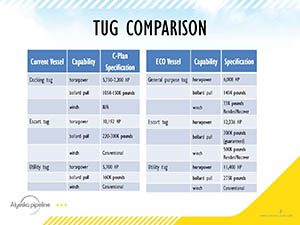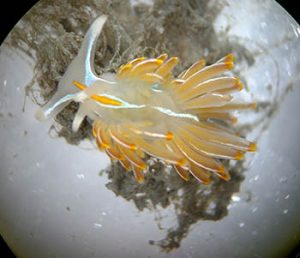Submitted by Alyeska Corporate Communications.
 While spring officially arrived in March, the snow keeps falling in Valdez, the snowiest city in America. The white stuff has long stymied crews at the Valdez Marine Terminal, who often spend weeks clearing snow from areas around the 1,000-acre facility, including crude oil storage tank roofs. It wasn’t always that way.
While spring officially arrived in March, the snow keeps falling in Valdez, the snowiest city in America. The white stuff has long stymied crews at the Valdez Marine Terminal, who often spend weeks clearing snow from areas around the 1,000-acre facility, including crude oil storage tank roofs. It wasn’t always that way.
“When I started here in the mid-nineties, all we had to do was move oil from tank to tank,” said Al Laudert, a Terminal Maintenance Coordinator. “The oil was so warm, enough of it in the tank would make the snow shed right off the top.”
But with declining throughput, the crude oil leaves the North Slope cooler, takes longer to arrive in Valdez, and isn’t warm enough to melt the snow of the tops of the storage tanks. Alyeska has always had a busy snow removal program, but has had to bring in crews for the tank farms since the early 2000s.
The tank top snow removal crews are made up of 7-10 people who can take up to a week to clear off one tank. This shoveling job is quite a bit bigger than your driveway; the roofs are about an acre in area and more than 60 feet off the ground.

